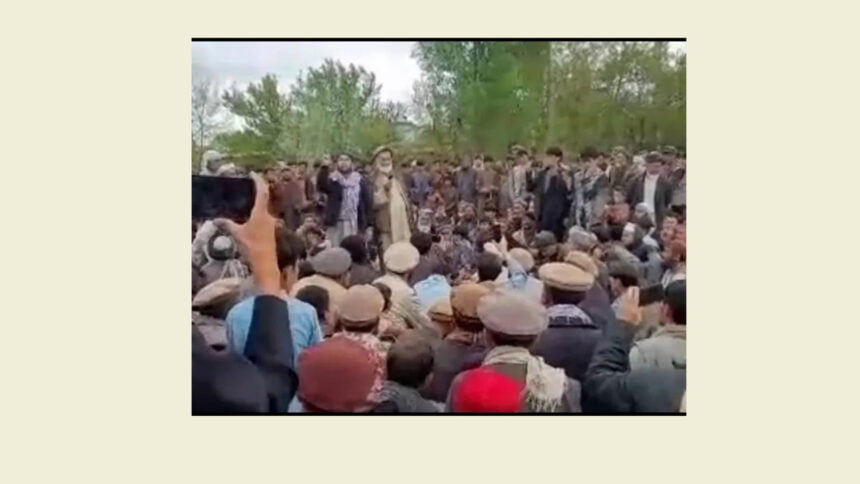The Taliban government has announced it will prosecute soldiers involved in firing on civilians during a poppy eradication campaign in the Argo and Darayim districts of Badakhshan province. The Interior Ministry of the Taliban government stated that members of the forces engaged in the confrontations, which occurred during the campaign, will face legal proceedings. Local leaders from these districts have reportedly agreed with the Taliban that different forces will be deployed for future eradication efforts, and these will not include the individuals involved in the recent incidents.
The Taliban government’s Interior Ministry further states that local residents had agreed not to resist the poppy eradication efforts. BBC Pashto quotes ministry spokesperson Abdul Matin Qani, confirming that there were local demands for a Sharia court to handle the cases of the soldiers who fired on the people. He affirmed that the request was legitimate and that the security personnel involved in the dispute with protesting farmers had been referred to the court.
Qani also refuted reports suggesting that there had been a protest in Baghlan following similar issues after Badakhshan. He explained that there had only been a minor demonstration in Baghlan weeks earlier due to damage from floods to homes, which the government had promptly addressed.
Media outlets such as Afghanistan International have labeled this as an ethnic conflict, pointing out that the resistance in Badakhshan primarily involves Tajik residents opposing the predominantly Pashtun Taliban forces. However, Taliban spokesperson Zabihullah Mujahid denied these reports on his X (formerly Twitter) account, stating that the recent protests and violence in the regions were solely related to the poppy eradication efforts and claimed that some agitators had attacked officials involved in the campaign.
A high-level delegation led by the Taliban government’s Chief of the Army Staff, Qari Fasihuddin Fitrat, has been appointed to investigate the incidents comprehensively and will report their findings to the Taliban leaders in Kabul, according to Mujahid.
In a strong message to local leaders, Mr. Fitrat expressed the seriousness of the Taliban’s commitment to eradicating poppy cultivation, urging that unnecessary resistance should not destabilize Badakhshan or force the deployment of additional military units.
A recent decree by Taliban leader Mawlawi Hibatullah Akhundzada outlaws poppy cultivation throughout Afghanistan. Farmers dependent on poppy cultivation maintain that economic hardship and lack of alternatives force them to continue the practice. They implore the government to provide viable livelihood options if the ban is to be successfully enforced. This situation echoes previous clashes in Helmand province, where Taliban forces and poppy farmers engaged in conflict during crop destruction campaigns.





